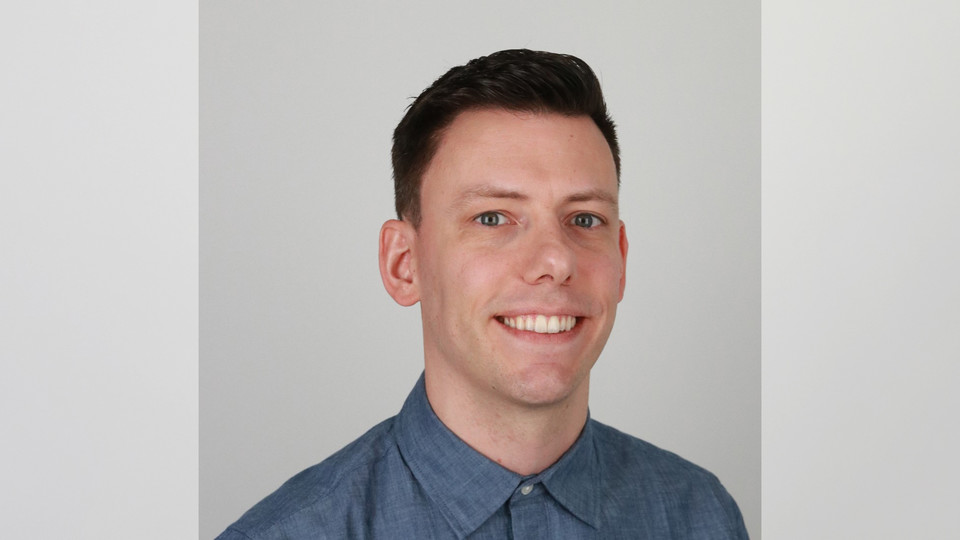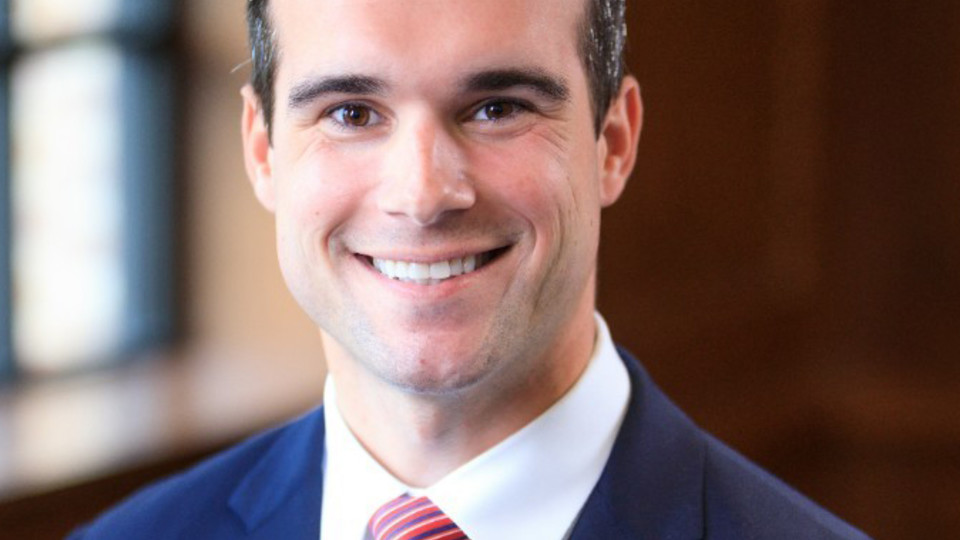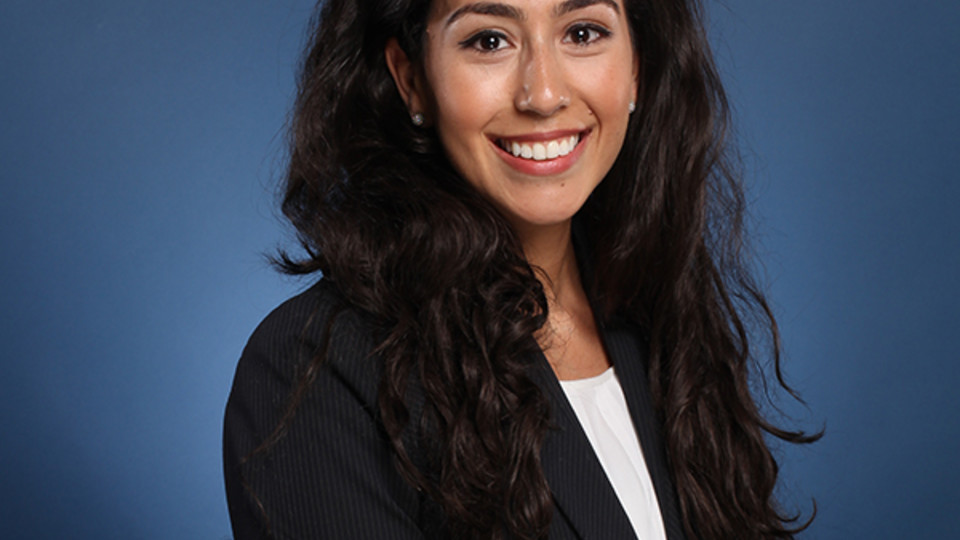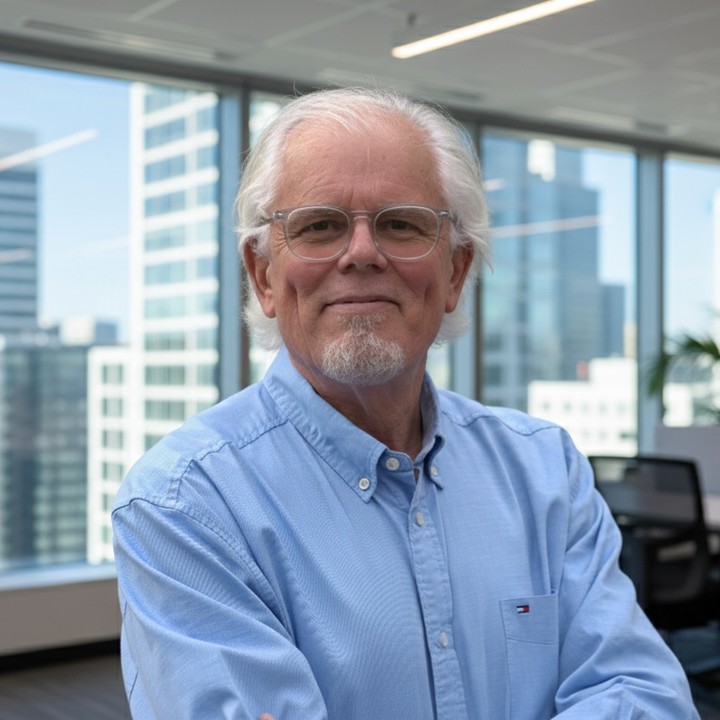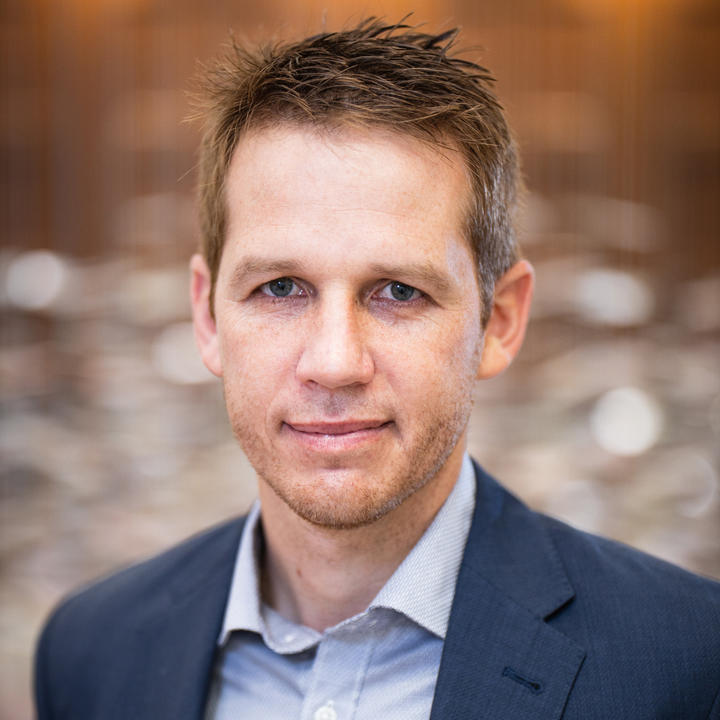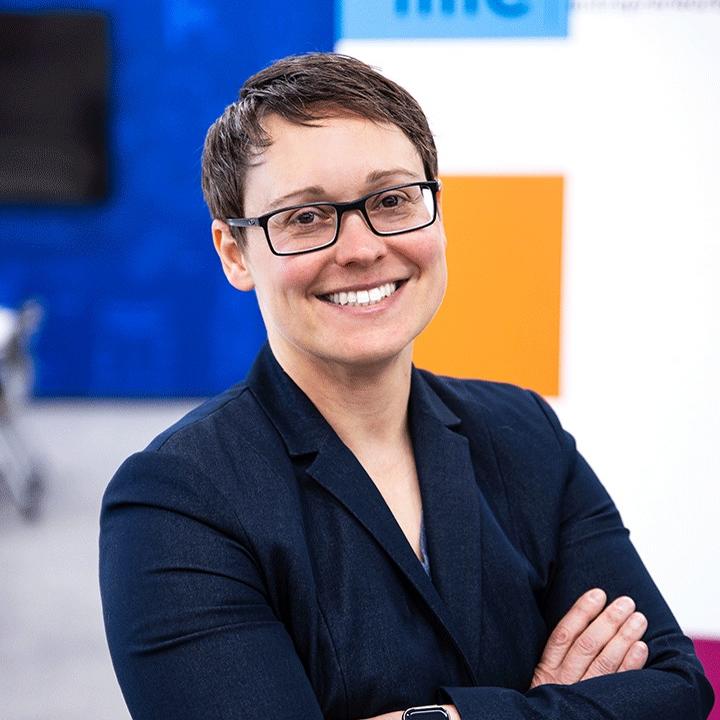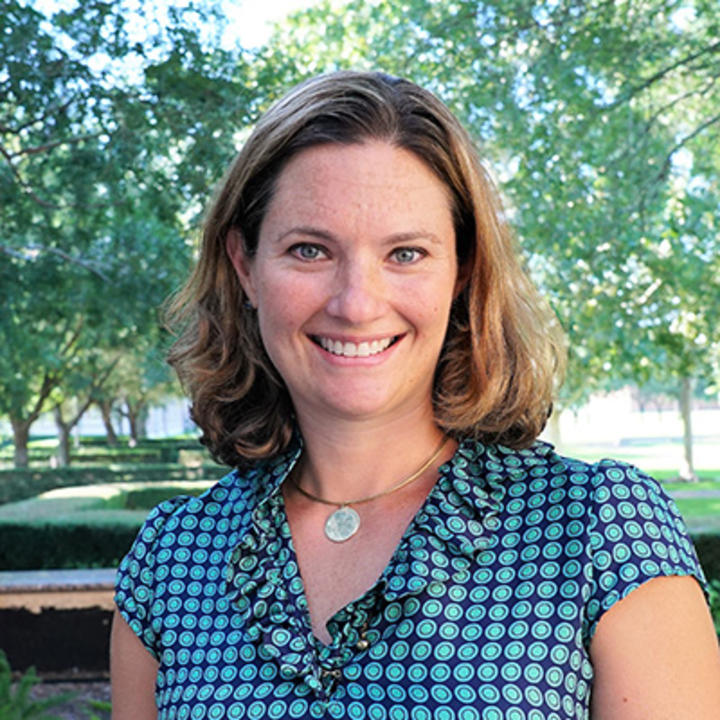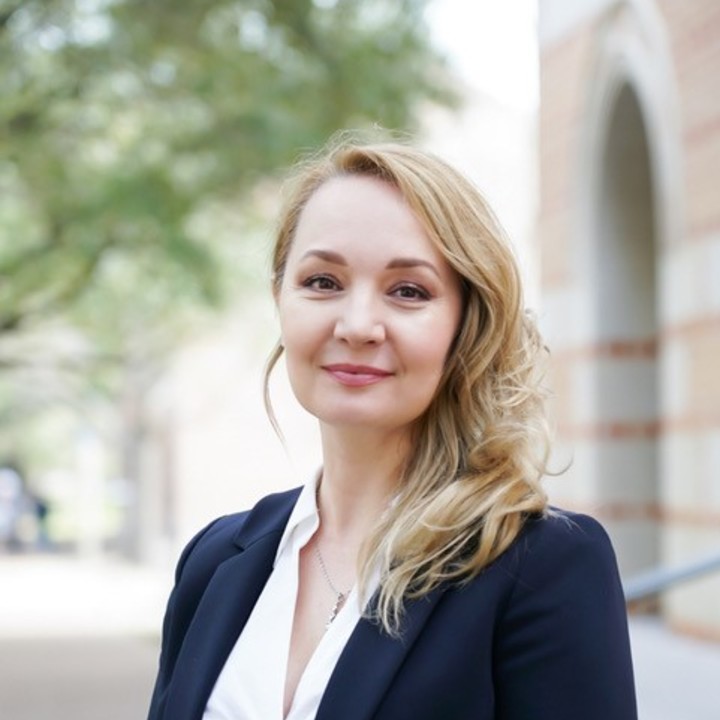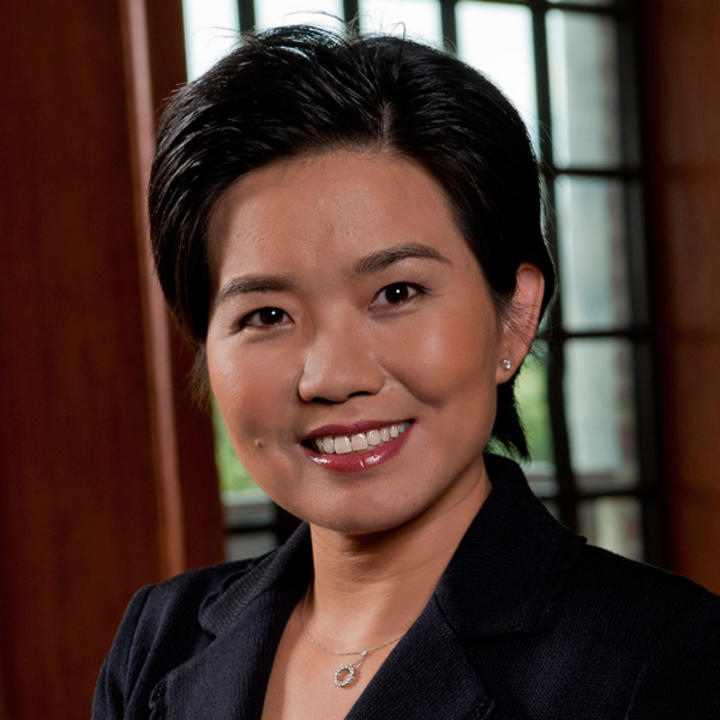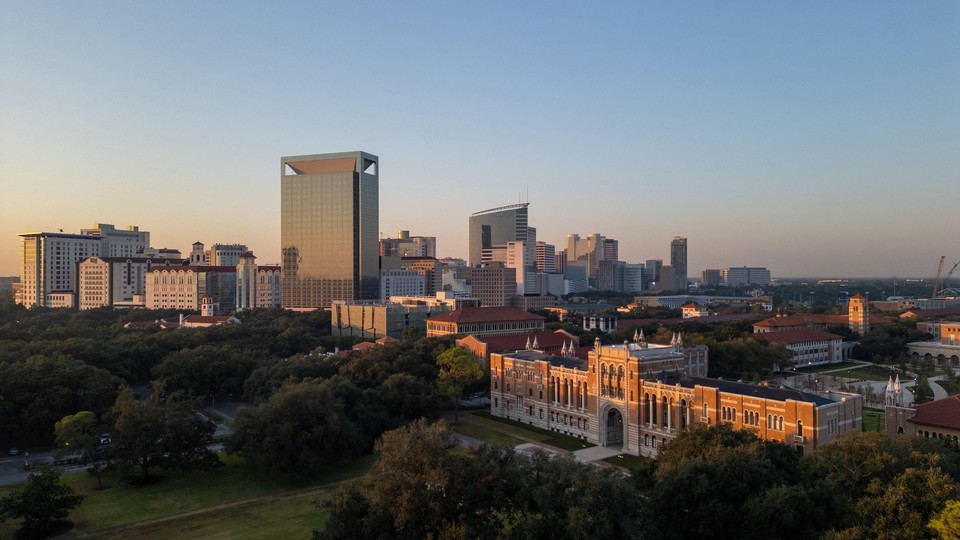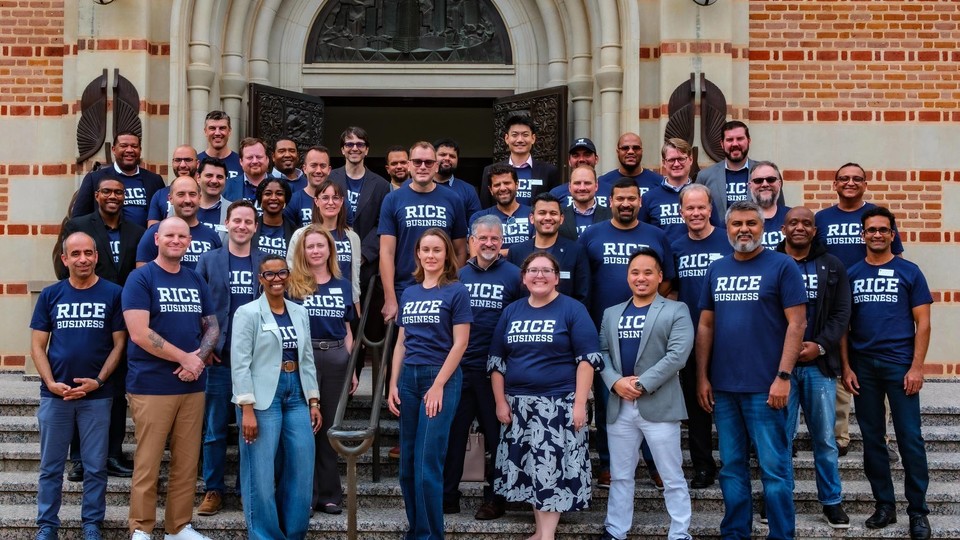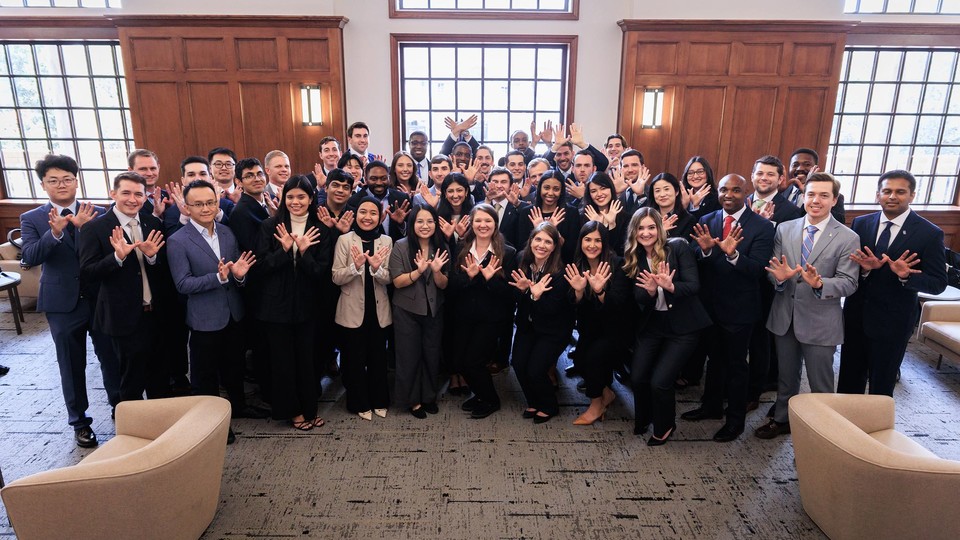Patents as loan collateral can help businesses meet financial needs, study shows
Patents are becoming an innovative source of collateral for businesses borrowing money, and there’s a time-critical sweet spot for lenders trying to calculate how much those patents are worth, according to new research co-authored by Yan Anthea Zhang, chair professor of strategy at Rice Business


Patents are becoming an innovative source of collateral for businesses borrowing money, and there’s a time-critical sweet spot for lenders trying to calculate how much those patents are worth, according to new research from Rice University experts and collaborators.
Researchers from Rice's Jones Graduate School of Business, American University and Sichuan University studied how the novelty of a patent’s foundation – in other words, whether the patent is based upon more recent or relatively old prior inventions - affects how much it’s worth as collateral. They used data from 107,180 semiconductor patents owned by 436 U.S. firms in the industry. The researchers focused on how a patent’s “external technology linkage” – how often an inventor cites other businesses’ patents – can help lenders assess how much the patent might be worth to other firms.
“We find an inverted U-shaped relationship between the newness of a patent’s external technology linkage and the likelihood that the patent will be used as collateral,” wrote authors Yan Anthea Zhang, chair professor of strategy at Rice Business, Zhuo Emma Chen, assistant professor of strategy at American University, and Yuandi Wang, professor of strategy at Sichuan University.
Patents linked to newer inventions have a lower risk of obsolescence. But if the related inventions are too new, it raises the risk for lenders that the underlying technologies may not have been market-tested. The authors find that new patents linked to moderately new inventions are more likely to be pledged — that is, put up as collateral.
“Within a given firm’s patent portfolio, higher-quality patents (those that have been frequently cited by others) are more likely to be accepted by lenders as loan collaterals,” the authors wrote.
“None of the other patent characteristics — a patent’s claim counts, technology class counts, references to non-patent literature and originality — are related to the likelihood of being pledged.”
The authors investigated how the firms themselves affected this likelihood. If the borrowing firms’ patents are highly specific to that firm, meaning the patented technology is useful mainly to them, lenders’ concerns about the untested market for the technology rises. But if the borrowing firm’s business aligns with the same technological domain as the patent, the market would give the firm greater credibility and reduce lenders’ concerns about the risk of unverified patented inventions.
They also found that a firm's prior experience in putting up patents as collateral matters. Compared to firms with no or little experience, patents owned by firms that have more patent pledge experience are more likely to be accepted.
“As patent pledge represents a financial innovation, which is still in the early stage of adoption, firms that have more experience in patent pledge know how to do it and more importantly, have higher credibility in lenders’ eyes,” they wrote.
Borrowing against patents opens new doors for inventing firms, but lenders still face great challenges assessing the risk of accepting them as collateral.
You May Also Like

Rice University’s Jesse H. Jones Graduate School of Business today announced the launch of its Graduate Certificate in Healthcare Management program, a 10-month, credit-bearing professional credential designed for current and aspiring leaders seeking deep expertise in the business of healthcare.
Dallas Fed Appoints Rice University Dean Peter Rodriguez to Houston Branch Board
The Federal Reserve Bank of Dallas has appointed Rice Business Dean Peter Rodriguez to its Houston Branch board of directors for a three-year term beginning January 1, 2022.
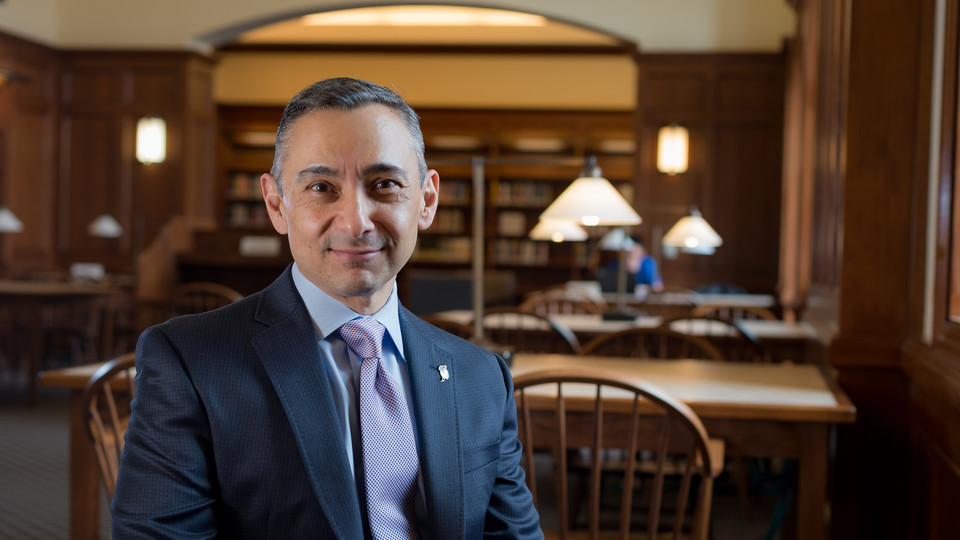
An Entrepreneur Who's On the Right Track feat. Cameron Simoneau ’05
Season 2, Episode 4
Cameron Simoneau '05, owner of Tri-State Running Company, speaks to host Christine Dobbyn about his transition from corporate life into entrepreneurship.

Owl Have You Know
Season 2, Episode 4
Cameron Simoneau ’05 and owner of Tri-State Running Company, speaks to host Christine Dobbyn about his transition from corporate life into entrepreneurship.
Subscribe to Owl Have You Know on Apple Podcasts, Spotify, Youtube or wherever you find your favorite podcasts.
You May Also Like
100% Of This Top Program’s 2021 Grads Found Jobs — At Record-Breaking Salaries
During the virtual 2021 MBA Case Competition, three finalist teams, including one from Rice Business, will present their solutions live to a panel of judges.
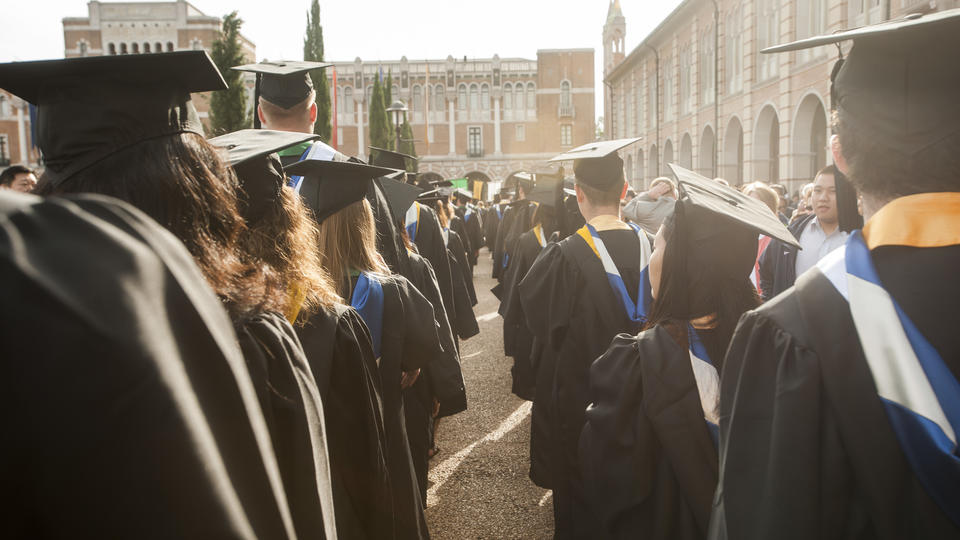
The Alum Keeping Moms in the Workforce feat. Abbey Donnell ’17
Season 2, Episode 3
Abbey Donnell ’17 discusses how Rice Business empowered her to start her own company and the female entrepreneurship environment in Houston.
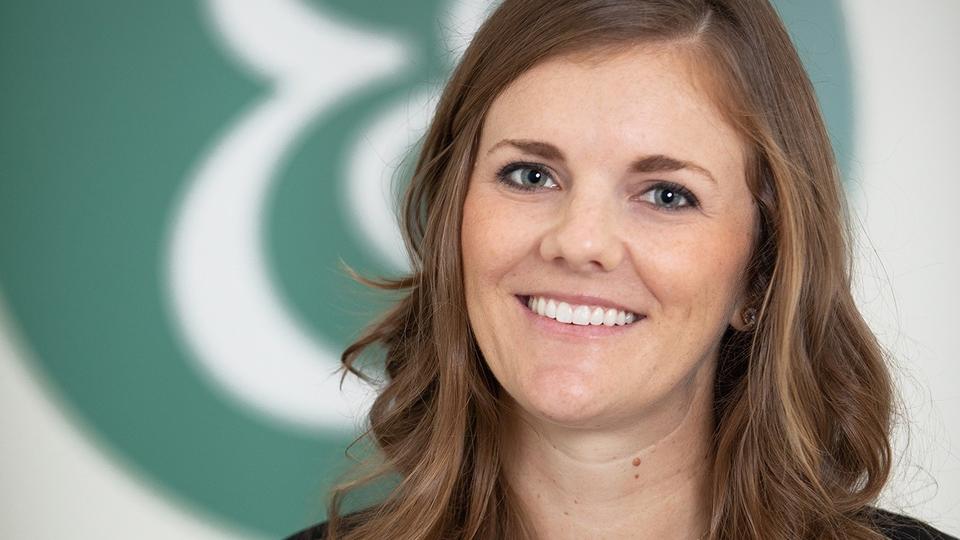
Owl Have You Know
Season 2, Episode 3
In this episode, Abbey Donnell ’17 joins host Christine Dobbyn to discuss how Rice Business empowered her to start her own company, the women entrepreneurship environment in Houston and how service providers can pivot through the pandemic.
Subscribe to Owl Have You Know on Apple Podcasts, Spotify, Youtube or wherever you find your favorite podcasts.
You May Also Like
Meet the Teach
The decision about where to go to business school comes down to several factors. Who you're learning from is key.

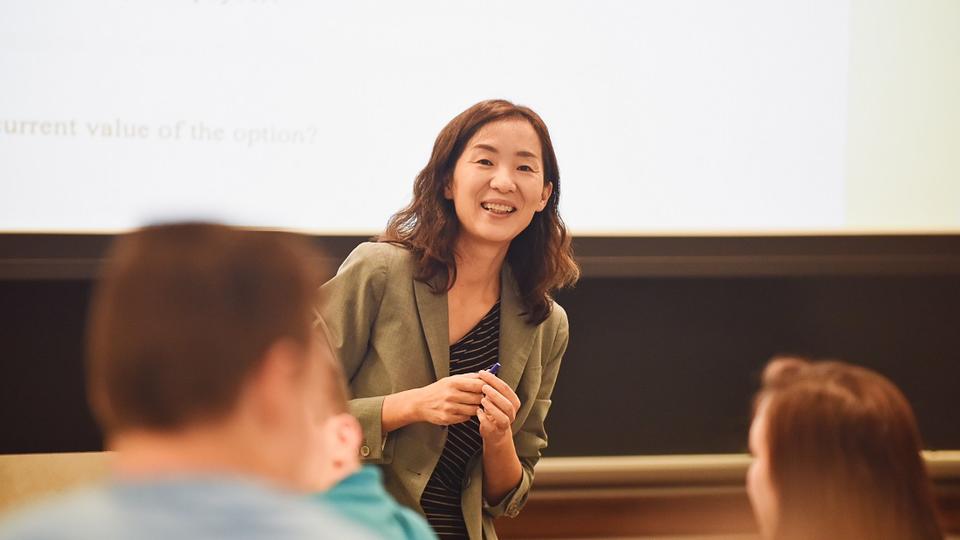
Updated from original post that was published on 11/30/2021.
It’s only natural you’d want to get to know your professors. What’s their classroom like? Are they researching something you can apply to your job or business idea? The decision about where to go to business school comes down to several factors. Who you’re learning from is key.
Our faculty, along with our students, staff and alumni, are the fabric of who we are. We’re intentional about who we recruit as faculty — both for research expertise and the unique insights they bring into the classroom. With an average class size of 40 and 211 faculty members — including more than 62 female faculty leading from the front of the classroom — you have the amazing opportunity to get to know your professors. Our 6:1 student-to-faculty ratio means impromptu conversations happen in the hallway after class when you have a question about a new concept. It means they follow up to see how that interview for your dream job went. It means they know your name and are invested in your success.
It also means that what they’re teaching in your course is infused with their latest and greatest research. From machine learning methods leading to understanding consumer and firm behavior better to designing and managing health care delivery systems, professors bring their findings into the classroom so you learn fresh ideas from the source.
You can read up on the professors who received this year’s Teaching Excellence Awards and learn about all our professor’s work on Rice Business Wisdom, the school’s online ideas magazine with tons of quick reads on the relevant, interesting, evidence-based research our faculty publish. This is a great way to get to know some of your professors before you start school.
Interested in Rice Business?
Get to Know Some of Our Faculty
You May Also Like
Keep Exploring
Will Houstonians shop on Black Friday? Online retail, waning interest could put an end to it.
“More and more people are buying things online,” said Utpal Dholakia, marketing professor at Rice Business. “And that takes a lot out of the glamour, the image of Black Friday as something special.”

How Companies Raise Prices Without Raising Prices
Companies hope that by making price increases hard to see, they can escape notice and avoid a customer backlash. Rice Business marketing profesor Utpal Dholakia breaks down the common ways companies raise prices covertly.

The Princeton Review & Entrepreneur Magazine Name the Top Undergrad & Grad Schools for Entrepreneurship Studies for 2022
The Princeton Review and Entrepreneur today announced the results of The Princeton Review's 16th annual ranking of undergraduate and graduate schools for entrepreneurship studies. Rice University was #1 on the top 50 graduate schools list, achieving a “three-peat”: having been #1 on that list for three consecutive years.
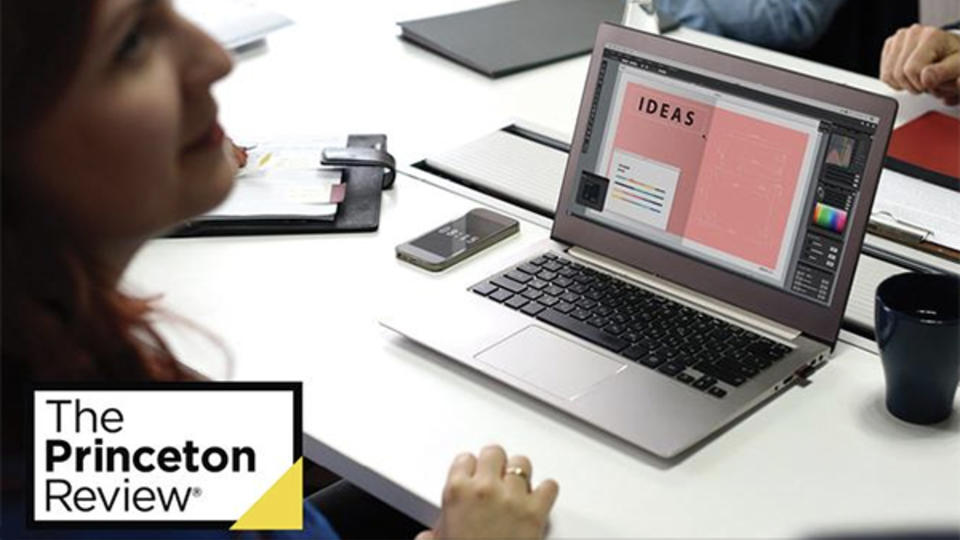
Rice Business ranked No. 1 for entrepreneurship by Princeton Review
Rice Business is ranked the No. 1 graduate entrepreneurship program in the United States for 2022 by the Princeton Review and Entrepreneur magazine. This is Rice Business’ third No. 1 ranking in a row on this prestigious list.
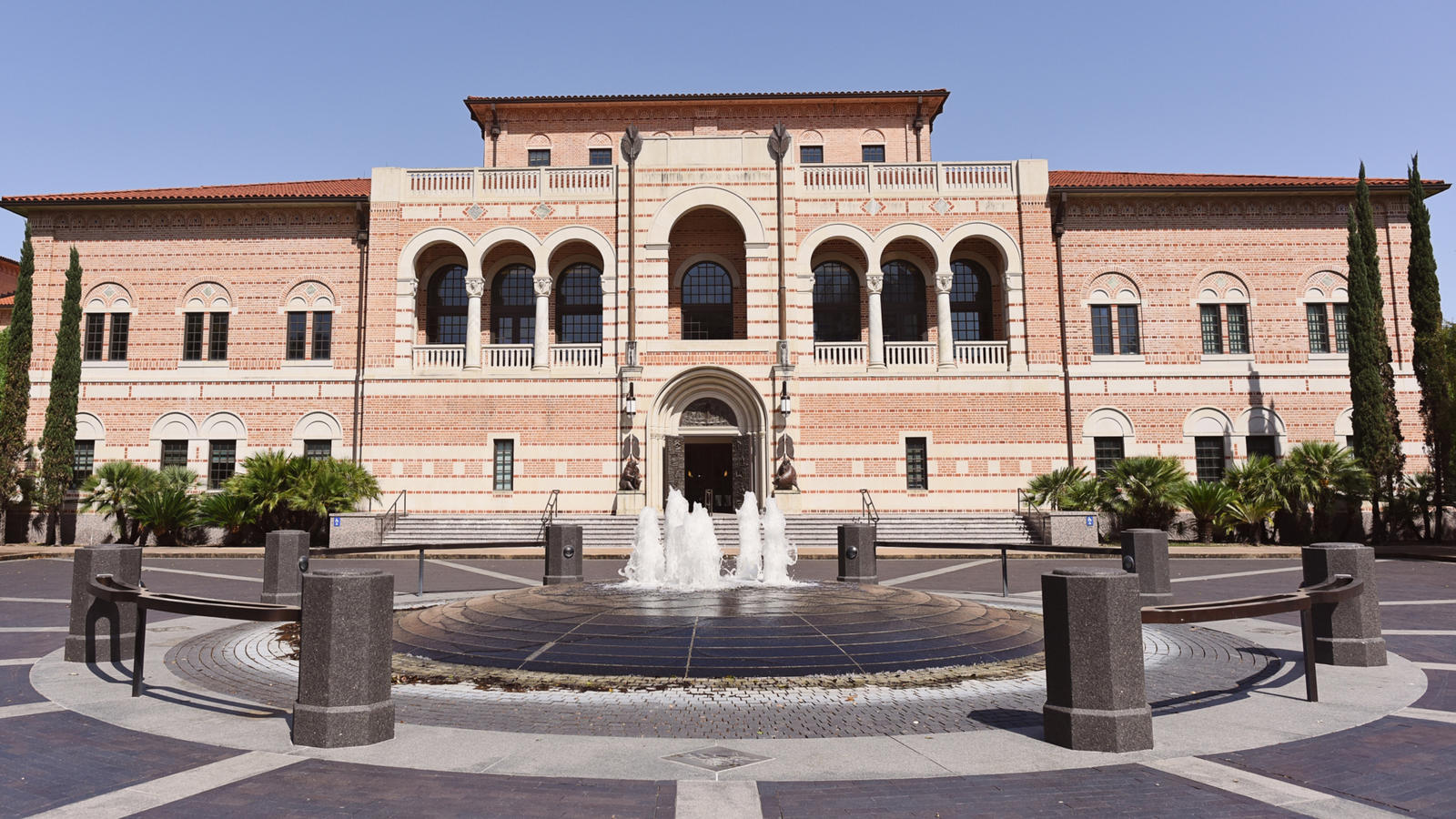
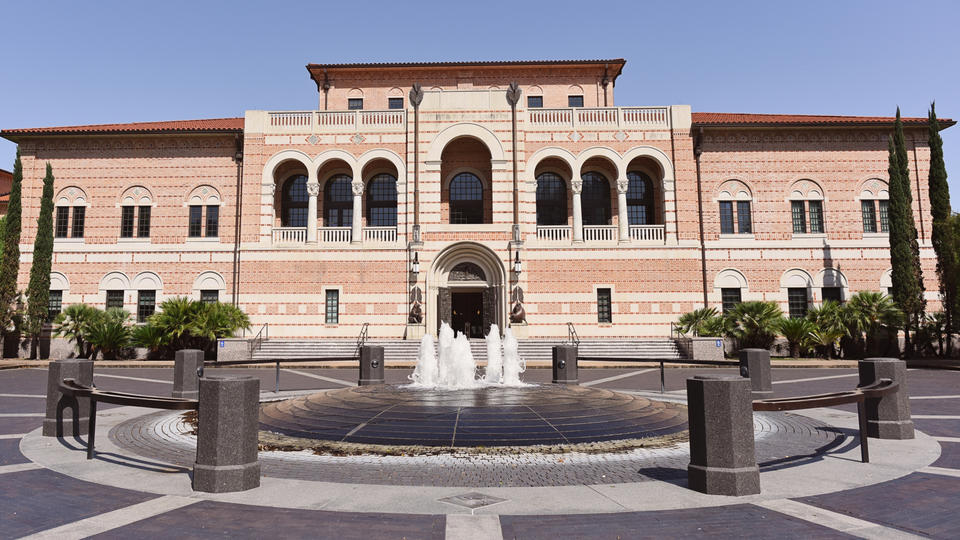
Rice Business is ranked the No. 1 graduate entrepreneurship program in the United States for 2022 by the Princeton Review and Entrepreneur magazine. This is Rice Business’ third No. 1 ranking in a row, its sixth year in the top three and the 13th year in which it has ranked in the top 10 on this prestigious list.
The Rice entrepreneurship ecosystem combines academic courses and co-curricular entrepreneurship programs led by the Liu Idea Lab for Innovation and Entrepreneurship (Lilie) with community-focused efforts led by the Rice Alliance for Technology and Entrepreneurship.
“Our No. 1 ranking is a reflection of the work and effort of our entrepreneurship faculty and staff to continually expand our programs and impact on behalf of our student and faculty founders,” said Peter Rodriguez, dean of the Jones Graduate School of Business. “Our three-years-running spot at the top is a testament to the Rice faculty, the depth and breadth of resources that are available to entrepreneurs and innovators during their time at Rice and beyond, and the students who have capitalized on their time at Rice to learn and launch their ventures from campus to the community.”
The placement comes on the heels of other recent high international rankings for Rice’s entrepreneurship programs, including No. 3 from Poets and Quants and No. 5 from Bloomberg BusinessWeek.
“When you combine the experienced entrepreneurs and investors who serve as our faculty and mentors, and the kind of problem-rich environments we can immerse our students in to discover and explore industries undergoing tremendous change, that’s a recipe for building a unique and special campus ecosystem,” said Yael Hochberg, head of the Rice Entrepreneurship Initiative and Lilie and the Ralph S. O’Connor Professor of Entrepreneurship at Rice Business.
Rice student entrepreneurs develop their ventures through Lilie’s suite of experiential programs, leveraging resources such as the lab's state-of-the-art startup coworking space, equity-free funding and mentorship to accelerate their ventures, culminating with the Napier Rice Launch Challenge competition each spring.
The Rice Alliance for Technology and Entrepreneurship offers one of the largest and richest business plan competitions in the world, the world-renowned Rice Business Plan Competition, as well as the Rice Venture Forums, which showcase startups to the community and corporate world.
“Our students are able to launch promising business ideas and, with our connections, receive mentoring from members of the Houston entrepreneurial ecosystem and pitch to angel investors, venture capitalists and corporations,” said Brad Burke, managing director of the Rice Alliance. “These opportunities are unique to Rice students and aren’t found on most campuses.”
The Princeton Review tallied its 2022 rankings based on a survey of leaders at more than 300 schools offering entrepreneurship studies. The 60-question survey covered the schools’ commitment to entrepreneurship studies inside and outside the classroom. Topics included the percentage of students taking entrepreneurship courses, the number and reach of mentorship programs, the number of startups founded by recent alumni and the cash prizes offered at school-sponsored business plan competitions. In all, more than 40 data points were analyzed to develop the rankings, which will be published in the December issue of Entrepreneur magazine.
For more information on Rice Entrepreneurship, visit entrepreneurship.rice.edu or email the Liu Idea Lab for Innovation and Entrepreneurship at lilie@rice.edu.
You May Also Like

Rice University’s Jesse H. Jones Graduate School of Business today announced the launch of its Graduate Certificate in Healthcare Management program, a 10-month, credit-bearing professional credential designed for current and aspiring leaders seeking deep expertise in the business of healthcare.
